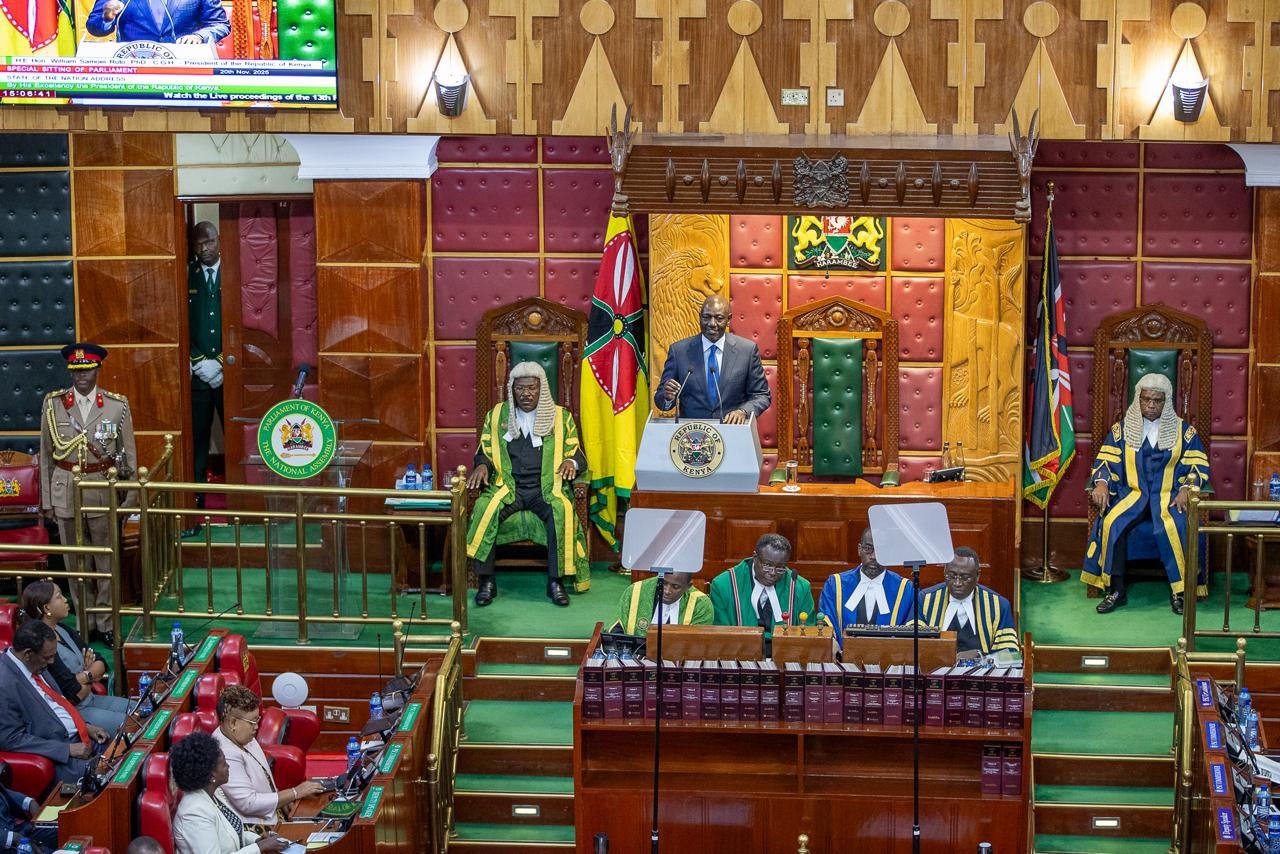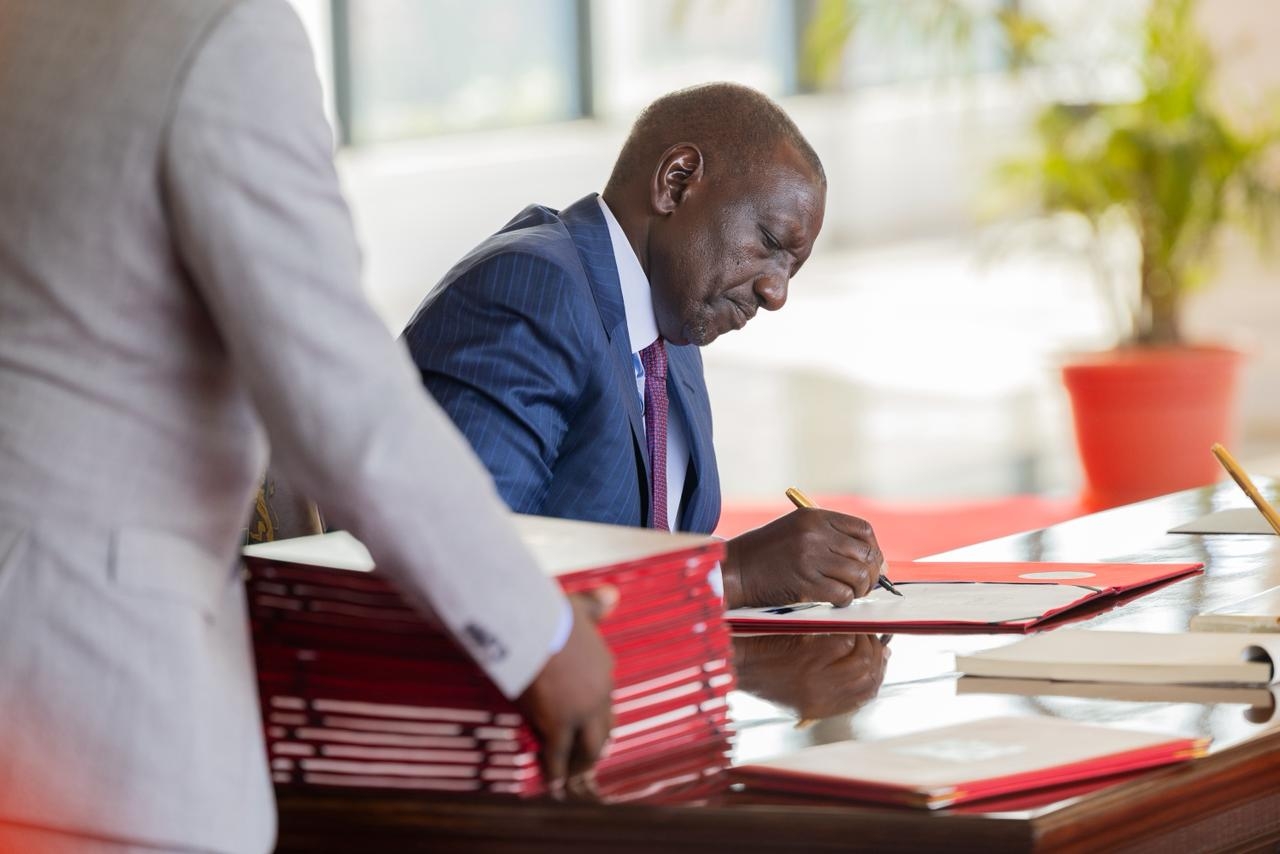Evans Mogaka has for all his life depended on his two-acre tea farm to earn a living.
But waking up every morning to go and pluck tea and expect quick returns has not been a walk in the park as it comes with several challenges.
For Mogaka, earnings from tea leaves have been a poisoned chalice of some sort because of the poor and late payments.
“The wait for our wage is like four years and when they come, the pay is poor,” Mogaka said.
He, just like other small-scale tea farmers in the country, has seen it all.
Peter Koech is another small-scale tea farmer who has endured low pay for ages.
“We have high expectations that the ongoing reforms will uplift our living standards,” he said.
Smallholder tea farmers in the country account for around 65 per cent of the total tea production.
The remaining 35 per cent is in the hand of multinationals.
Small-scale farming has helped many communities secure their livelihood. Tea farming is also a crucial forex earner for the country.
Kenya is the third leading producer of tea and the biggest exporter accounting for 28 per cent of the world's tea exports.
In 2021, the sector earned the country a Sh136 billion in foreign exchange.
Despite the earnings from the sector, tea farmers are often poorly paid and the cash comes in way too late.
The poor state of affairs in smallholder tea farms was aptly captured in a report by Africa Development Bank in 2010.
The report dubbed ‘Smallholder Agriculture in East Africa: Trends, Constraints and Opportunities,’ showed that there are a lot of challenges facing smallholder farmers.
Adeleke Salami, Abdul Kamara and Zuzana Brixiova investigated the trends, challenges and opportunities of the subsector in East Africa through case studies in Kenya, Ethiopia, Uganda and Tanzania.
The researchers identified land tenure, access rights and land management as one of the constraints.
“These problems can be examined from different perspectives. The constraints relate to the tenure system, such as insecurity of land tenure, unequal access to land and lack of a mechanism to transfer rights and consolidate plots, have resulted in underdeveloped agriculture, high landlessness, food insecurity and degraded natural resource,” the researchers said.
They also found that financing agriculture and access to credit was a tall order for smallholder farmers as they depended on savings from their low incomes, which limits opportunities for expansion.
The researchers also identified access to input and output markets, poor infrastructure, disintegrated and ineffective agriculture extension services, policy-related and institutional constraints and climate change and related food security as major challenges.
Some of these challenges have seen some farmers uproot tea leaves before shifting to other crops.
However, despite all the challenges, Mogaka has kept the faith fully aware that good things come to those who wait.
His prayers were answered when the government started rolling out far-reaching reforms aimed at turning around the fortunes in the sector.
The reforms are meant to ensure that farmers such as Mogaka get better returns and early payments.
They are also aimed at ensuing such farmers have a voice in electing their leaders, dealing a major blow to exploitation by the middlemen.
Some of the reforms include the minimum price in the market, fertiliser subsidy, increase in monthly payments to farmers, payment of bonuses in July as opposed to October of each year and reduction of interest rates by Greenland Fedha which has ensured affordable loans.
Such middlemen have for a long time reaped where they did not sow and ensured corruption thrives.
Introduced through the Tea Act of 2020, the reforms are aimed at improving returns to the small-scale holder farmers such as Mogaka.
The Act says small-scale tea growers and medium-scale tea growers must register with the tea factory to which the respective tea growers deliver a green leaf or a purple leaf using the prescribed form.
The Act also says every factory must keep a register for small-scale farmers for statistical purposes.
The register must specify the name of the small-scale tea grower and medium-scale tea grower; the location, size and parcel number of the land on which the tea is grown; the net weight in kilogrammes of green leaf delivered and the amount paid annually.
The register should also have a variety of tea grown.
Where the tea factory has reasonable cause to believe that a person whose particulars are so recorded has ceased to be a small-scale tea grower and medium-scale tea grower, it may, after giving that person written notification by registered post of its intention to do so, remove their name from the register.
The Act says a person will not sell or offer for sale green leaf unless the person is registered with a tea factory in accordance with the law.
A tea factory will only buy green leaves from its registered tea growers.
A small-scale tea grower or medium-scale tea grower will not sell green leaves to any person other than the tea factory where they are registered.
The Act says a small-scale tea grower or medium-scale tea grower wishing to change the tea factory where they deliver their green leaf shall inform their respective tea factory by giving a minimum notice of 30 days.
“A person who contravenes the provisions of this section commits an offence and shall, on conviction, be liable to a fine not exceeding one hundred thousand shillings, or imprisonment for a term not exceeding six months, or to both,” part of the Act says.
And as part of reforms, Kenya Tea Development Authority (KTDA) has reduced charges per gross turnover from 2.5 per cent to 1.5 per cent.
Some of the beneficiaries of the new move include Tea farmers from Nyamira, Nandi, Kericho, Bomet, Kisii, Trans-Nzoia and Vihiga counties.
The review was arrived at following protracted negotiations between the Kenya Tea Development Agency-Management Services Limited and smallholder tea factories that lasted 23 months, and whose results were an agreement with 34 tea factories in KTDA’s seven regions.
All smallholder tea factories managed by the agency signed the reviewed agreements with KTDA-MS Ltd, which will be submitted to the Tea Board of Kenya for review and approval before implementation.
KTDA Holdings board chairman David Ichoho lauded the move saying it will see farmers reap better returns.
Ichoho made the remarks after a three-day negotiation meeting in Nakuru.
He said the introduction of key performance indicators to monitor the performance of the management agency on a continuous basis was among the major changes in the reviewed management agreement.
Ichoho said the management agreement review term was also reduced by half, from the current 10 years to five years.
"This move is expected to enhance the accountability of the management agency and improve the agency's relationship with tea farmers," Ichoho said.
“The operations will be in strict compliance with the law to entrench corporate governance and accountability in all the 34 tea factories,” he said.












